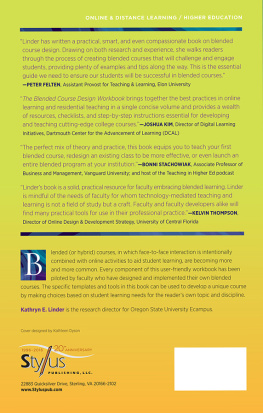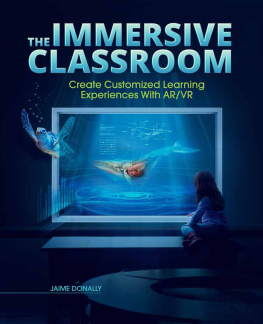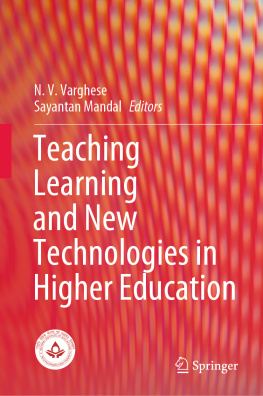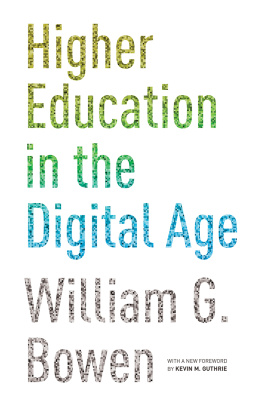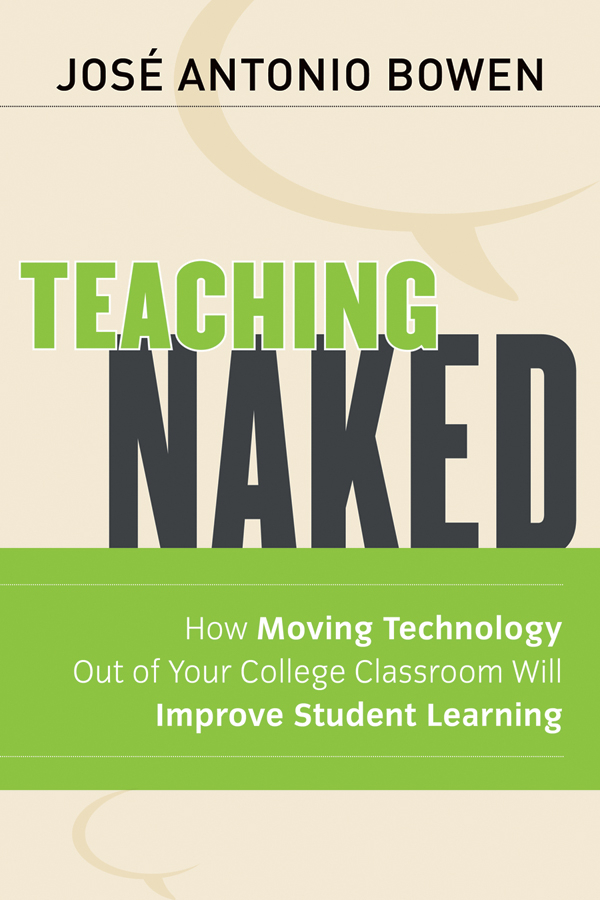Contents

Copyright 2012 by John Wiley & Sons, Inc. All rights reserved.
Published by Jossey-Bass
A Wiley Imprint
One Montgomery Street, Suite 1200, San Francisco, CA 94104-4594 www.josseybass.com
No part of this publication may be reproduced, stored in a retrieval system, or transmitted in any form or by any means, electronic, mechanical, photocopying, recording, scanning, or otherwise, except as permitted under Section 107 or 108 of the 1976 United States Copyright Act, without either the prior written permission of the publisher, or authorization through payment of the appropriate per-copy fee to the Copyright Clearance Center, Inc., 222 Rosewood Drive, Danvers, MA 01923, 978-750-8400, fax 978-646-8600, or on the Web at www.copyright.com . Requests to the publisher for permission should be addressed to the Permissions Department, John Wiley & Sons, Inc., 111 River Street, Hoboken, NJ 07030, 201-748-6011, fax 201-748-6008, or online at www.wiley.com/go/permissions .
Limit of Liability/Disclaimer of Warranty: While the publisher and author have used their best efforts in preparing this book, they make no representations or warranties with respect to the accuracy or completeness of the contents of this book and specifically disclaim any implied warranties of merchantability or fitness for a particular purpose. No warranty may be created or extended by sales representatives or written sales materials. The advice and strategies contained herein may not be suitable for your situation. You should consult with a professional where appropriate. Neither the publisher nor author shall be liable for any loss of profit or any other commercial damages, including but not limited to special, incidental, consequential, or other damages. Readers should be aware that Internet Web sites offered as citations and/or sources for further information may have changed or disappeared between the time this was written and when it is read.
Jossey-Bass books and products are available through most bookstores. To contact Jossey-Bass directly call our Customer Care Department within the U.S. at 800-956-7739, outside the U.S. at 317-572-3986, or fax 317-572-4002.
Wiley also publishes its books in a variety of electronic formats and by print-on-demand. Some material included with standard print versions of this book may not be included in e-books or in print-on-demand. If the version of this book that you purchased references media such as CD or DVD that was not included in your purchase, you may download this material at http://booksupport.wiley.com . For more information about Wiley products, visit www.wiley.com .
Library of Congress Cataloging-in-Publication Data
Bowen, Jos Antonio.
Teaching naked: how moving technology out of your college classroom will improve student learning / Jos Bowen. First edition.
pages cm. (The Jossey-Bass higher and adult education series)
Includes bibliographical references and index.
ISBN 978-1-118-11035-5; ISBN 978-1-118-22428-1 (pdf); ISBN 978-1-118-23808-0 (epub); ISBN 978-1-118-26240-5 (mobipocket)
1. Educational technology. 2. EducationEffect of technological innovations on. 3. School improvement programs. 4. Blended learning. I. Title.
LB1028.3+
371.33dc23
2012016814
The Jossey-Bass Higher and Adult Education Series
Preface
The dogmas of the quiet past are inadequate to the stormy present. The occasion is piled high with difficulty, and we must rise with the occasion. As our case is new, so we must think anew and act anew. We must disenthrall ourselves, and then we shall save our country .
Abraham Lincoln
The future of higher education is deeply intertwined with new technologies. Technology has changed students and professors, how we access knowledge, the nature of community, the habits of learning, our understanding of patience, and virtually everything about education. It has also created an expanding global market for online learning that will continue to increase in quality, efficiency, and flexibility. Considering these changes, the value of a bricks-and-mortar university will remain in its face-to-face (i.e., naked) interaction between faculty and students. As the traditional model of college is challenged by changes in demographics and college preparation, for-profit institutions, hybrid class schedules with night and weekend meetings, free online learning, and even free certificates from the best traditional brands, it is widely predicted that there will be fewer students enrolled in expensive, inflexible, full-time, four-year degrees (Van Der Werf & Sabatier, 2009). If we want campus education to survive, then we need to focus on the experience of direct physical interaction in higher education and make it worth the extra money it will always cost to deliver.
We know from Alexander Astins What Matters in College: Four Critical Years Revisited (1993) that student engagement and facultystudent interaction matter most in student learning. At the heart of Teaching Naked is the seeming paradox that technology can be harnessed to enhance the widely desired goals of increased student engagement and facultystudent interaction but that it is most powerfully used outside of class as a way to increase naked, nontechnological interaction with students inside the classroom. This book addresses the why and how of this paradox and provides specific guidance for faculty and administrators on how to leverage both technology and face-to-face classes to improve student learning and ensure the survival of the bricks-and-mortar university. Thus, the aim of this book is to connect the practical questions of immediate interest to professors with the larger managerial and policy challenges facing administrators.
The Tyranny of Common Sense
Abraham Lincoln argued against the tyranny of common sense, the invisible belief system that limits our imagination by mandating obvious and singular ways to do things. It is their commonness that makes these assumptions and attitudes transparent and therefore so dangerous.
Common sense tells academics that our students are learning because of what we do in the classroom. But it is a common misconception that everything that successful people do contributes to their success. A teacher might be successful because he is excellent at explaining complex problems in a simple manner, but after a few teaching awards it is easy to start believing that the soft voice and the no-late-work policy also contribute to his success, when in fact changing both of those tactics might make him even better. Since common sense tells him that he deserves his success, it is hard to convince him to change. Similarly, American education has been incredibly successful, but not everything we do has contributed to that success.
We were all taught with lectures, and we all give them despite a mountain of evidence showing that they are poor transmitters of content and even worse tools for learning. When our students learn, we attribute their learning to our current methods. We persist because common sense tells us that lecturing is working. But any analysis of how we might improve student learning has to start with the dissection of everything we currently do.
In America, for example, there is a deeply held assumption about modularity in the liberal arts. We believe that the order in which students take courses is only slightly important. We encourage students to take a majority of their general education courses in the first two years, but in reality we routinely mix seniors and freshmen in the same course and then do not expect more from the seniors in our grading. For the British, and most other academics around the world, this common-sense approach is nonsense that can only be justified by some economic necessity. A sequential curriculum is routine in most other countries: first-year students must master rudimentary skills before they move on to higher levels of thinking and analysis. Americans can see the logic of Blooms taxonomy (Bloom, 1956, rev. Anderson & Krathwohl, 2001) that progresses from remembering and understanding to applying, analyzing, evaluating, and creating; even so, most American general education curricula are structured around content and continue to allow students to acquire that content in almost any order. Most college major curricula contain a modicum of progression, with gateway and capstone courses. However, few American institutions expect or assess integration of learning outcomes between general education and the major, so we have no idea if our modular curriculum structure is working or is just an old form of common sense.


